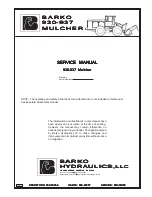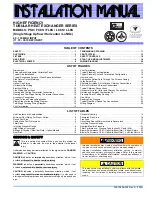
215620
239
Revision A
6.2
Fuel Specifications
Use only ultra low sulphur diesel (ULSD) from a reputable supplier. For most year-round service, No. 2 ULSD fuel meeting
ASTM specification D975 Grade S15 will provide good performance.
If the vehicle is exposed to extreme cold (below -7°C [20°F]) or is required to operate at colder-than-normal conditions for
prolonged periods, use climatized No. 2 diesel fuel, or dilute the No. 2 ULSD fuel with 50% No. 1 ULSD fuel. This will
provide better protection from fuel gelling or wax-plugging of the fuel filters.
Table 6.2 Fuel Specifications
Fuel
Specification
Sulphur
(by weight)
Water and
Sediment
(by volume)
Cetane No.
°C (°F)
Lubricity
ULSD Grade
No. 2
ASTM D975
0.5% maximum
0.05% maximum
40 (104) minimum
520 Microns
ULSD Grade No.
1 and 2 mix
6
n/a
1% maximum
0.5% maximum
preferred
0.1% maximum
45
–
55 (113
–
130)
cold weather / high
altitude
460 Microns
In extreme situations, when available fuels are of poor quality or problems exist which are particular to certain operations,
additives can be used; however, the engine manufacturer recommends consultation with the fuel supplier or engine
manufacturer before using fuel additives. Situations where additives are useful include:
•
A cetane improver additive can be used with low cetane fuels.
•
A wax crystal modifier can help with fuels with high cold filter plugging points (CFPP).
•
An anti-icer can help prevent ice formation in wet fuel during cold weather.
•
An antioxidant or storage stability additive can help with fuel system deposits and poor storage stability.
•
Diesel fuel conditioner can be used to increase the lubricity of fuels so that they meet the requirements given in
Table
.
6.
Optional when operating temperature is below 0°C (32°F).
















































